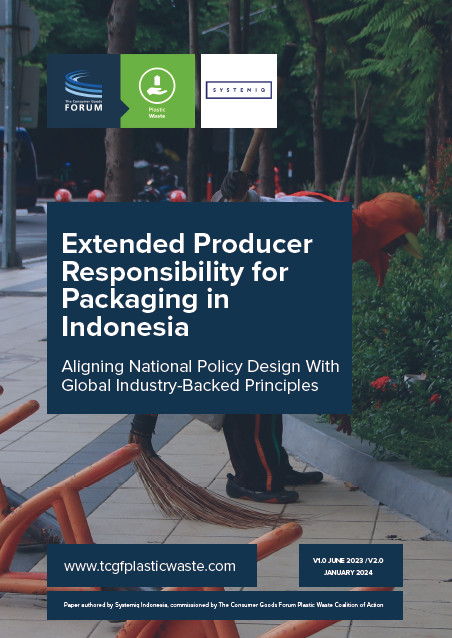Members of The Consumer Goods Forum (CGF) Coalition of Action of Plastic Waste (the Coalition) have today released a paper analysing the opportunities and challenges in implementing EPR in Indonesia, and drawing upon the Optimal EPR Principles endorsed by 34 global Coalition members.
It concludes that optimally-designed EPR policy in Indonesia:
- can directly address the root causes of plastic pollution, thereby accelerating progress towards Indonesia’s waste management targets
- can complement existing forms of circular waste management funding
- has greater potential to reduce packaging waste and plastic pollution than plastic excise tax or voluntary plastic credits
- needs to reflect the Indonesian context in its design and implementation and must not be an exact replica of models in the Global North.
Companies play an important role in reducing (plastic) packaging pollution. In many countries, they do this via mandatory Extended Producer Responsibility (EPR) schemes, where companies that put packaging on the market contribute to the funding of the collection, sorting and recycling of packaging after use, with the goal of increasing collection and recycling rates.
For more details on the CGF’s work to accelerate progress towards a circular economy, including Extended Producer Responsibility (EPR) for packaging visit www.tcgfplasticwaste.com.

